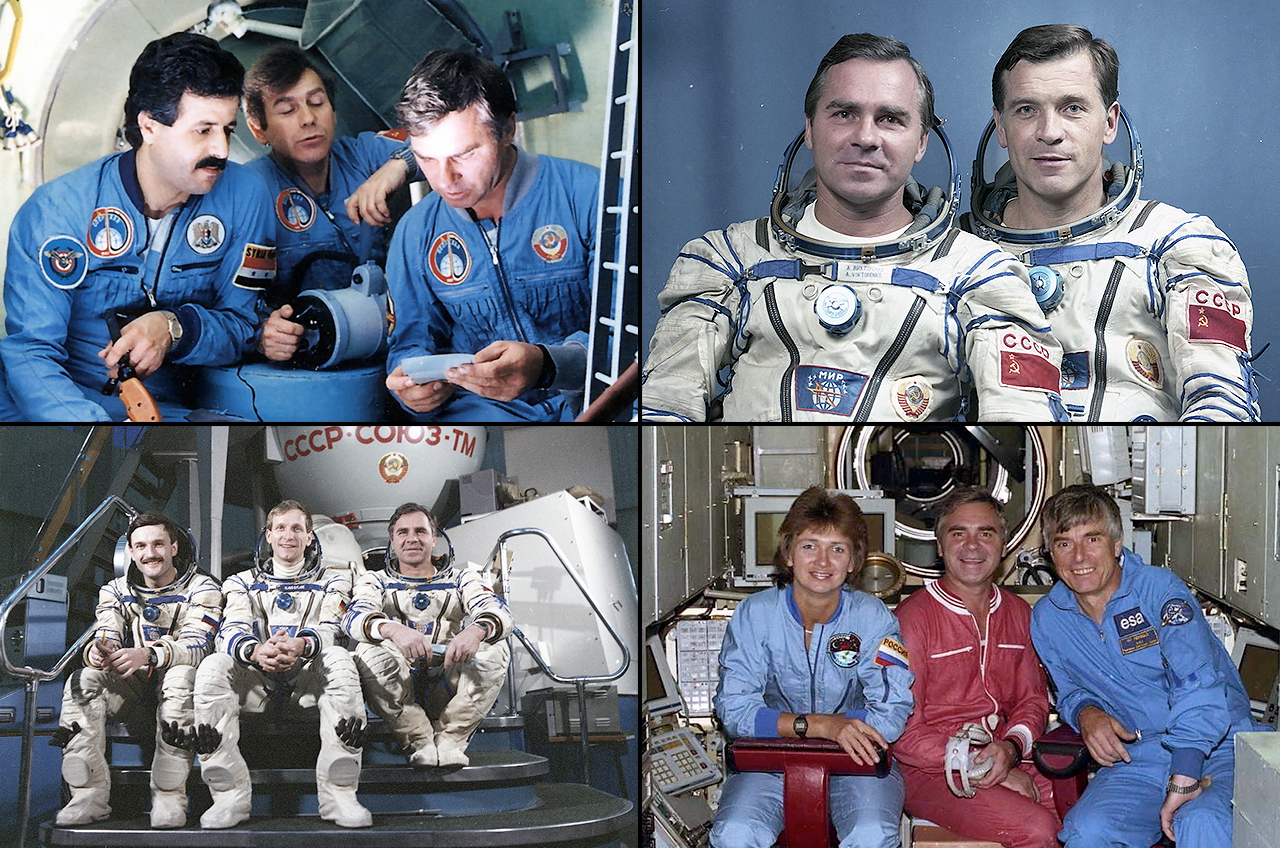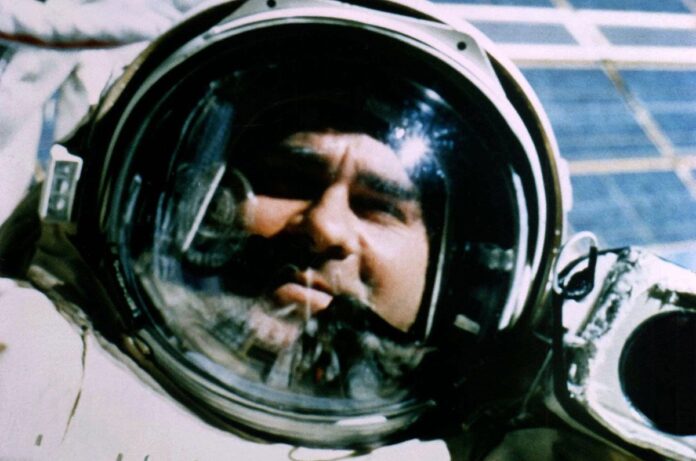Russian cosmonaut Alexander Viktorenko, whose four flights into Earth orbit included the first test of a “space motorcycle” and first launch after the fall of the Soviet Union, has died at the age of 76.
The Gagarin Cosmonaut Training Center in Star City confirmed Viktorenko’s death in a statement released on Thursday (Aug. 10).
“The whole life of Alexander Stepanovich was devoted to astronautics. He made an invaluable contribution to the history of space exploration,” the statement read.
Selected in 1978 to join the Soviet corps, Viktorenko’s cosmonaut career spanned 19 years, including commanding four missions to the Mir space station.
Viktorenko’s first launch on July 22, 1987, began a week-long mission to deliver fellow Soviet cosmonaut Alexander Aleksandrov for a long-duration stay on Mir and accompany Muhammed Faris, a Syrian cosmonaut, to and from the space station. The Soyuz TM-3 flight marked the first time a Mir crew launched on board one spacecraft and landed on another, with Viktorenko, Faris and Alexander Laveykin (who launched 174 days earlier) returning to Earth aboard Soyuz TM-2.
Viktorenko lifted off on his first long-duration mission on Sept. 5, 1989. This time paired with cosmonaut Alexander Serebrov, Viktorenko commanded Soyuz TM-8 and the fifth expedition to Mir. Over the course of their 166 days in space, the two cosmonauts oversaw the arrival and installation of Kvant-2, the third module and second major addition to the Mir space station, and conducted five spacewalks.
On his fifth extravehicular activity (EVA), Viktorenko followed Serebrov in testing Ikar (“Ikarus”), the so-called “space motorcycle” designed to enable cosmonauts to fly around the space station, similar to NASA’s manned maneuvering unit, or MMU. Despite its motorbike moniker, the SPK or “Cosmonaut Movement System” (as it was formally referred) was closer in appearance to a floating armchair than its two-wheeled nickname.
Viktorenko’s third visit to Mir was the first to launch to represent the Russian Federation in space, following the collapse of the Soviet Union in December 1991. Lifting off on March 17, 1992, Viktorenko led the Soyuz TM-14 crew of Alexander Kaleri and Klaus-Dietrich Flade of Germany.
The mission included Viktorenko’s sixth and last spacewalk. For two hours and three minutes, he and Kaleri worked on repairing Mir’s stabilizing gyroscope so the space station could maintain its attitude. They also tested binoculars intended for inspecting areas on Mir’s exterior that could not be easily reached.
On his fourth and final spaceflight, which began on Oct. 3, 1994, Viktorenko flew with Soyuz TM-20 crewmates Yelena Kondakova, the first woman to launch on a long-duration spaceflight, and Ulf Merbold, who on a prior spaceflight became the first West German citizen to fly into space and the first non-American to fly on a NASA spacecraft (the space shuttle).
Nearing the end of his last 169 days on Mir, Viktorenko saw the arrival of the first U.S. space shuttle to rendezvous with the Russian space station. On Feb. 6, 1995, when Discovery and its STS-63 crew were just 36 feet (11 meters) from Mir, Viktorenko replied to their greetings by radioing, “We are one. We are human.”
Viktorenko completed his time in space by handing off to the first Soyuz/Mir crew to include an American astronaut, Soyuz TM-21 crew member Norm Thagard. Viktorenko then returned to Earth with Kondakova and Valery Polyakov, the latter ending the single longest spaceflight by anyone in the world at 678 days, 16 hours and 32 minutes.
In total, Viktorenko logged 489 days, one hour and 33 minutes in space, including 19 hours and 39 minutes on six spacewalks.

Alexander Stepanovich Viktorenko was born on March 29, 1947 in the Kazakh village of Olginka. After graduating from the Advanced School of Military Aviation in Orenburg in 1969, he served as a colonel and test pilot in Russia’s Air Force reserve.
Prior to his first flight into space while he was undergoing basic training in 1979, Viktorenko suffered burns, a fall and a brain concussion, knocking him unconscious for 17 hours, as a result of a errors by the person operating an altitude chamber. As a result, Viktorenko needed an additional two years to become eligible for mission assignments.
In addition to his own flights, Viktorenko served as backup commander to Soyuz T-14, Soyuz T-15, Soyuz TM-7, Soyuz TM-13 and Soyuz TM-19.
After returning from space for his fourth time, Viktorenko became an instructor at the Gagarin Cosmonaut Training Center.
“His life is an example of selfless service to the motherland, courage, fortitude, high civic duty and devotion to the chosen cause!” the cosmonaut center’s staff wrote. “The bright memory of Alexander Stepanovich Viktorenko will forever remain in our hearts!”
Viktorenko was married to Raisa Ivanovna (nee Lysenko) with whom he had two children, Oksana and Aleksei. A memorial service and funeral will be held on Aug. 12 at the Federal Military Memorial Cemetery of Russia’s Ministry of Defense in the urban district of Mytishchi.
Follow collectSPACE.com on Facebook and on Twitter at @collectSPACE. Copyright 2023 collectSPACE.com. All rights reserved.

